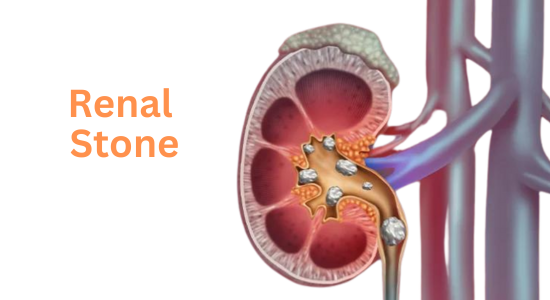Renal Stone Treatment in Bathinda
Renal Stone Treatment in Bathinda: Comprehensive Guide and Solutions

Understanding Renal Stones
- Calcium Stones: These are the most common and usually form from calcium oxalate .
- Uric Acid Stones: These stones are prevalent in individuals who do not drink enough water or consume a high-protein diet.
- Struvite Stones: Often related to infections, these stones can grow quickly and become quite large.
- Cystine Stones: These are rare and occur in people with a genetic disorder called cystinuria .
Causes and Risk Factors
Several factors can lead to the formation of renal stones:
- Dehydration: Lack of sufficient water intake can lead to concentrated urine, which encourages stone formation.
- Dietary Choices: High intake of salt, sugar, and protein can increase the risk of developing stones.
- Obesity: Excess body weight is linked to a higher likelihood of kidney stones.
- Genetic Predisposition: A family history of kidney stones can increase your risk.
Identifying Symptoms of Renal Stones
Renal stones can cause various symptoms, especially when they move through the urinary tract:
- Severe Pain: Sharp, cramping pain in the back and sides is a common symptom.
- Hematuria: Blood in the urine, which can appear pink, red, or brown.
- Nausea and Vomiting: Often accompanied by severe pain.
- Frequent Urination: A persistent urge to urinate, sometimes with pain.
- Foul-Smelling or Cloudy Urine: This can indicate an infection.
- Fever and Chills: Symptoms of an infection.
Diagnostic Methods for Renal Stones
In Bathinda, healthcare professionals use several diagnostic methods to detect renal stones:
- Imaging Tests: CT scans, ultrasounds, and X-rays can reveal the size and location of stones.
- Blood Tests: These tests can show high levels of minerals or other substances that cause stones.
- Urine Tests: A 24-hour urine collection can help identify the composition of the stones.
- Stone Analysis: If stones are passed, they can be analyzed to determine their type.
Preventing Renal Stones
Preventive measures can help reduce the risk of developing kidney stones:
- Stay Hydrated: Drink plenty of water throughout the day.
- Balanced Diet: Reduce intake of salt, sugar, and animal proteins.
- Limit Oxalate: Avoid foods high in oxalate, such as spinach and nuts.
- Healthy Weight: Maintain a healthy weight through diet and exercise.
Choosing Bathinda for renal stone treatment offers several advantages:
- Expert Medical Professionals: Bathinda boasts experienced nephrologists and urologists.
- Advanced Medical Facilities: State-of-the-art technology and equipment for diagnosis and treatment.
- Comprehensive Care: From diagnosis to treatment and post-care, patients receive thorough attention.
Renal stones are a common yet painful condition that requires timely diagnosis and appropriate treatment. In Bathinda, patients have access to expert care and advanced treatment options to effectively manage and treat renal stones. Whether it’s conservative management for small stones or surgical intervention for larger stones, the city’s healthcare providers are equipped to handle all aspects of renal stone treatment. By staying hydrated, making dietary changes, and consulting with a kidney specialist, individuals can prevent the recurrence of renal stones and maintain optimal kidney health.
For those experiencing symptoms or diagnosed with renal stones, it’s crucial to seek professional medical advice. Contact a renal stone treatment specialist in Bathinda today to schedule an appointment and receive personalized care tailored to your needs.